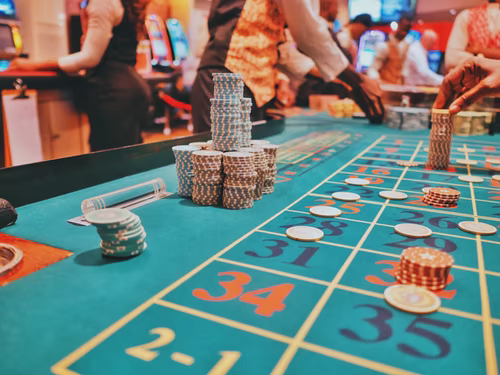The Economics of Gambling
The Economics of Gambling: How casinos and other gambling establishments make money, and the impact of gambling on local economies.
The economics of gambling is a complex topic that involves examining how casinos and other gambling establishments make money and the impact of gambling on local economies. In this article, we will explore these topics in more detail.
How Casinos and Other Gambling Establishments Make Money
Casinos and other gambling establishments make money through a combination of factors, including the house edge, player behavior, and marketing strategies.

The house edge is the advantage that the casino has over the player in any given game. For example, in roulette, the house edge is approximately 5.26%, meaning that the casino is expected to win $5.26 for every $100 wagered by players over the long run.
This edge ensures that the casino will make money over time, even if individual players win in the short term.
Player behavior also plays a role in how casinos make money. For example, casinos often offer free drinks, meals, and other incentives to keep players gambling for longer periods.
The longer players stay at the casino, the more money they are likely to lose, increasing the casino’s profits.
Marketing strategies also play a role in how casinos make money. Casinos use a variety of tactics to attract customers, including advertising, promotions, and loyalty programs.
The Impact of Gambling on Local Economies
Gambling can have both positive and negative impacts on local economies. On the positive side, casinos and other gambling establishments can create jobs and generate tax revenue for local governments.
In addition, casinos can attract tourists and other visitors, providing a boost to the local economy.
However, there are also potential negative impacts associated with gambling. One of the most significant negative impacts is the potential for gambling addiction and the associated social and economic costs.
Gambling addiction can lead to financial problems, relationship difficulties, and other negative consequences for individuals and their families.
In addition, gambling can also lead to a range of other negative outcomes, such as increased crime rates, and traffic congestion. These impacts can have a range of social and economic costs for local communities.
Conclusion
The economics of gambling is a complex topic that involves examining how casinos and other gambling establishments make money and the impact of gambling on local economies.
Casinos and other gambling establishments make money through a combination of factors, including the house edge, player behavior, and marketing strategies.
Gambling can have impacts on local governments to balance these impacts when making decisions about gambling regulations.
Overall, it is important for individuals to gamble responsibly and to be aware of the potential risks and benefits associated with gambling. 바카라사이트